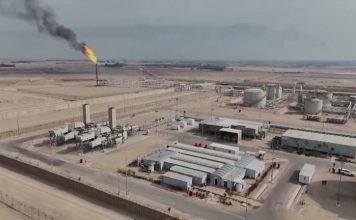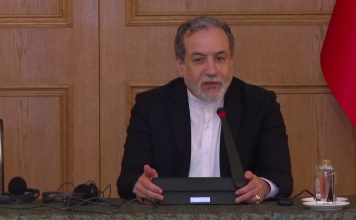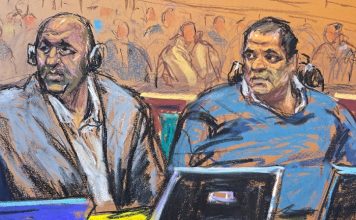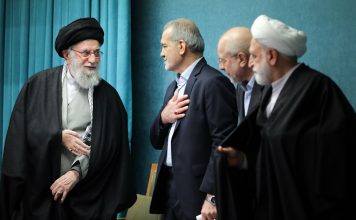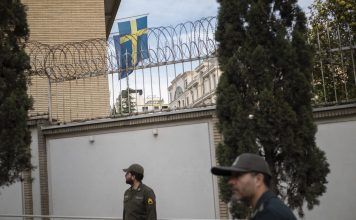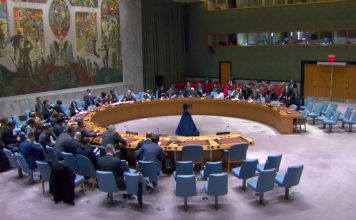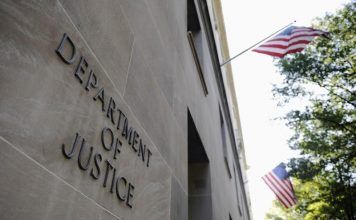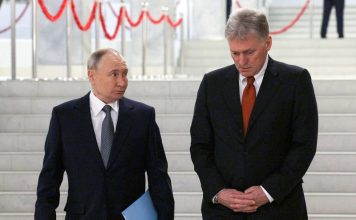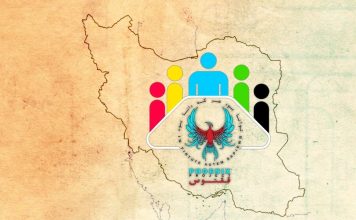An exiled Iranian lawyer who previously worked in Iran described the dangers of practicing law in the Islamic Republic during a Jan. 24 Iran human rights conference held at the Law Society of England and Wales headquarters in London.
The event, titled “Human rights violations in Iran: The role of lawyers,” was hosted by the International Bar Association, whose members include more than 80,000 lawyers and 190 legal bodies. The majority of attendees were lawyers and representatives of human rights organizations.
[aesop_image img=”https://kayhanlife.com/wp-content/uploads/2024/01/Room.jpeg” panorama=”off” credit=”Attendees and panel members at the event held at The Law Society in London. Photo credit: Michael Cross ” align=”center” lightbox=”on” captionsrc=”custom” captionposition=”left” revealfx=”off” overlay_revealfx=”off”]
The conference was produced by a coalition of more than 30 legal organizations and bar associations located around the world to commemorate the “Day of the Endangered Lawyer,” held on Jan. 24 annually. The Law Society, Britain’s regulatory body for solicitors, is a member of the coalition.
The event aims to raise awareness about lawyers targeted by governments for carrying out their professional duties. The coalition selects a country of concern for the year and provides support for at-risk lawyers. It chose to draw attention to the plight of Iran’s lawyers in 2024.
The roundtable was moderated by Baroness Helena Kennedy, a member of the UK House of Lords, a lawyer and the director of the International Bar Association’s Human Rights Institute. Speakers included:
- Richard Atkinson, the Vice President of the Law Society;
- Dr Javaid Rehman, the United Nations Special Rapporteur on the situation of human rights in the Islamic Republic of Iran;
- Margaret Satterthwaite, the UN Special Rapporteur on the Independence of Judges and Lawyers;
- Hadi Ghaemi, Executive Director, Centre for Human Rights in Iran;
- Caoilfhionn Gallagher, a senior lawyer at Doughty Street Chambers; and
- Sandrine Giraud, the vice president of the Geneva bar association.
[aesop_image img=”https://kayhanlife.com/wp-content/uploads/2024/01/Atkinson.jpeg” panorama=”off” credit=”Richard Atkinson, Vice President of the Law Society of England and Wales. Photo credit: Michael Cross ” align=”center” lightbox=”on” captionsrc=”custom” captionposition=”left” revealfx=”off” overlay_revealfx=”off”]
[aesop_image img=”https://kayhanlife.com/wp-content/uploads/2024/01/Gallacher.jpeg” panorama=”off” credit=”Caoilfhionn Gallagher KC, Barrister, Doughty Street Chambers. Photo credit: Michael Cross ” align=”center” lightbox=”on” captionsrc=”custom” captionposition=”left” revealfx=”off” overlay_revealfx=”off”]
[aesop_image img=”https://kayhanlife.com/wp-content/uploads/2024/01/Ghaemi.jpeg” panorama=”off” credit=”Hadi Ghaemi, Executive Director, Center for Human Rights in Iran. Photo credit: Michael Cross ” align=”center” lightbox=”on” captionsrc=”custom” captionposition=”left” revealfx=”off” overlay_revealfx=”off”]
[aesop_image img=”https://kayhanlife.com/wp-content/uploads/2024/01/Satterthwaite.jpeg” panorama=”off” credit=”Margaret Satterthwaite, UN Special Rapporteur on the Independence of Judges and Lawyers. Photo credit: Michael Cross” align=”center” lightbox=”on” captionsrc=”custom” captionposition=”left” revealfx=”off” overlay_revealfx=”off”]
The Iranian lawyer, who did not wish to be identified amid fears for her safety, spoke through a live audio feed with no video images.
“I deeply regret that I could not attend the event in person. This unfortunate circumstance underscores the gravity of the threats and intimidation Iranian lawyers are dealing with,” she said. “The result has been the spread of a culture of lawlessness and disregard for the rule of law and inviting further tension and confrontation between the state and society.”
“If we fail to unite and fight for the values guaranteed in the basic principles of the rule of law, to fight for a free, independent and proper functioning of the legal profession, we risk not just the rights of lawyers, but losing all other human rights that lawyers help uphold every day,” she added.
Debra Long, an international policy manager who oversees the Lawyers At Risk program at the Law Society, told Kayhan Life that the decision to select Iran “occurred because of concerns with the escalation of attacks against lawyers since the nationwide protests in 2022.”
“We felt that we were all being involved with interventions around lawyers in Iran being targeted. So for that reason, we thought Iran would be a good choice for the ‘Day of the Endangered Lawyer’ also in terms of the range of intimidation and kinds of attacks against lawyers, both in person but also through the law as well,” she said.
Protests erupted in Iran following the death of Mahsa Jina Amini, a 22-year-old woman who was arrested by Iran’s morality police in September 2022 for failing to observe the country’s compulsory hijab law, and who died while in police custody. The demonstrations began as calls for gender equality but quickly spread to include protests about living conditions and calls to remove the regime from power.
At least 66 lawyers have been arrested since the 2022 protests, and an estimated 11 lawyers have been sentenced.
“The brave women and men of the legal profession have been targeted with intimidation and harassment, including arbitrary arrest and disbarment for seeking to ensure that those arrested and charged have access to their right to legal defense,” the UN said in a Jan. 23 joint statement written by Rehman and Satterthwaite.
“Lawyers in Iran often work in peril within a legal profession that has been restricted by rules and regulations that contravene international standards relating to the free and independent exercise of the legal profession and the right to fair trial,” the statement went on.
Amir Raiesian, the lawyer for 23-year-old Mohammad Ghobadloo, who was executed in Iran on Jan. 23 for taking part in the protests and allegedly killing an officer, called the execution notice for his client “completely illegal” on a Jan. 22 post on X, as he said it had ignored Ghobadloo’s right to appeal. Ghobadloo’s case was reportedly marred by torture allegations and procedural violations.
No evidence was provided to his lawyer showing Ghobadloo’s presence at the demonstrations, nor his involvement in the official’s death. Ghobadloo had been receiving treatment for a serious mental health condition since the age of 15.
Lawyers in Iran are also increasingly being detained, imprisoned and killed for representing clients accused of politically motivated offenses, according to the United Nations and other human rights bodies monitoring the situation.
During the conference, Rehman said that since April 2023, at least 100 lawyers had been summoned to court allegedly to sign a document saying they expressed remorse for their support of the protests. A failure to sign, he said, meant the lawyers risked being barred from practice.
Legal experts on the event’s panel warned that the threat to lawyers inside Iran posed by the regime could now spread to the UK, where several Iranian lawyers lived and worked, some of whom assisted on lawyer detention cases in Iran.
The panel pointed to the recent kidnapping and assassination attempts against Iran reporters in the UK working at media organizations such as BBC Persian and Iran International. An investigation by Britain’s domestic intelligence agency MI5 and the Metropolitan Police, the details of which were published in November, found that the Iranian regime had tried to assassinate or kidnap 10 British nationals or UK-based individuals in a 10-month period, including several journalists.
EU Can Proscribe Iran’s Revolutionary Guards Without Delay, Lawyers Say
Another development — in the form of a ‘parallel’ bar association created and controlled by the government — was described by Ghaemi. The new body, like the current bar association in Iran, has the authority to issue law permits.
“I’m told thousands of former security, intelligence and government people within the system, as they have reached their thirties and forties, have been given permits to practice as lawyers, but we have no idea what kind of law training they have had,” Ghaemi said. “Iranian lawyers are horrified.”
“The original Bar Association, we believe, has about 60,000 practicing members of that order in the country. I was asking how many people have been issued law permits under this new scheme, and my colleagues tell me probably about the same,” Ghaemi said.
Panel members went on to discuss several prominent Iranian lawyers and their families who had been targeted by the regime, such as Nobel Laureate Dr. Shirin Ebadi and Nasrin Sotoudeh, a recipient of the Right Livelihood Award, widely known as the “Alternative Nobel Prize.”
“Dr. Shirin Ebadi won the Nobel Peace Prize in 2003 and left Iran in exile in 2009, having been targeted for decades for her work as a lawyer, as a human rights activist, as a jurist. Almost as soon as she was out of the country her sister gets arrested in January 2010,” Gallagher, a prominent human rights lawyer who has represented over 150 BBC journalists threatened by the regime, said.
“She said at the time in an interview: ‘My sister is a dentist. She has no involvement whatsoever in any form of political activity.’ Arresting her sister in Iran was an attempt essentially to try to silence the work that Dr. Shirin Ebadi was doing internationally,” Gallagher said.
During the event, the Law Society unveiled its Intervention Tracker, an interactive tool highlighting the work of its Lawyers At Risk program. The tool provides information about the actions the Law Society has taken to support endangered lawyers around the world. Actions include providing information about cases to the UN, writing intervention letters to countries of concern, sending briefs to domestic high courts and conducting fact-finding missions.
The coalition launched its report about the state of the rule of law in Iran during the event. The report outlines several concerns about the way the Iranian government treats lawyers including the use of arbitrary detention, vaguely defined charges against them and the revocation of licenses to practice as a means to intimidate and harass lawyers carrying out their work.
The report offers 15 recommendations including:
- Protections which must be enabled by the Iranian government to allow lawyers to carry out their work without fear of intimidation;
- The release of all lawyers detained for simply carrying out their professional duties;
- Ensuring proceedings against lawyers are impartial and independent; and
- The ability of lawyers to represent their clients without state interference.

